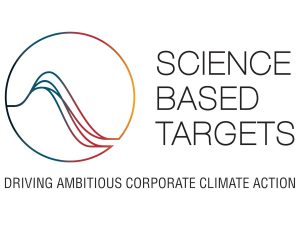
The SBTi is a partnership between CDP, the United Nations Global Compact, World Resources Institute (WRI), and the World Wide Fund for Nature (WWF). The Science Based Targets initiative (SBTi) drives ambitious climate action in the private sector by enabling organizations to set science-based carbon reduction goals. To ensure that businesses’ net-zero targets translate into action that is consistent with achieving a net-zero world by no later than 2050, the SBTi has introduced the first Corporate Net-Zero Standard in the world.
Visit www.sciencebasedtargets.org for more information
SBTi
Resources
The following documents have been recognized as resources from SBTi that corporate and businesses can use.
A quick, simple, step-by-step flow chart that allows companies to understand how to set net-zero targets in their specific situation.
a Step-by-step guide to the process of setting a science-based target through the SBTi.
The Net-Zero Standard Criteria includes all criteria that must be met for the net-zero target(s) to be validated by the SBTi. This document also includes recommendations, which are important for transparency and best practice but are not required.
The SBTi’s Corporate Net-Zero Standard (also referred to as the Net-Zero Standard) provides guidance, criteria, and recommendations to support corporates in setting net-zero targets through the SBTi.
The global apparel and footwear sectors produces more greenhouse gas emissions than the shipping and aviation sectors combined.
CO2 emissions from commercial aircraft are on course to triple by 2050. As such, the aviation sector has a vital role to play in halting global average temperature rises.
Financial institutions are increasingly recognizing the extent of climate risks and their impact on every market sector. Investment and lending activities must be urgently reviewed to avoid the worst effects of catastrophic climate change and fund a climate-secure, zero-carbon future.
The ICT sector is a dynamic one and the demands for faster transmission and more capacity are ever-growing.
Transport companies can set targets using (SBTi)’s Sectoral Decarbonization Approach (SDA) Transport for direct and indirect transport emissions. The tool is focused on the passenger, freight, and OEM sectors and provides greenhouse gas emissions accounting guidance and best practices for science-based target setting.







